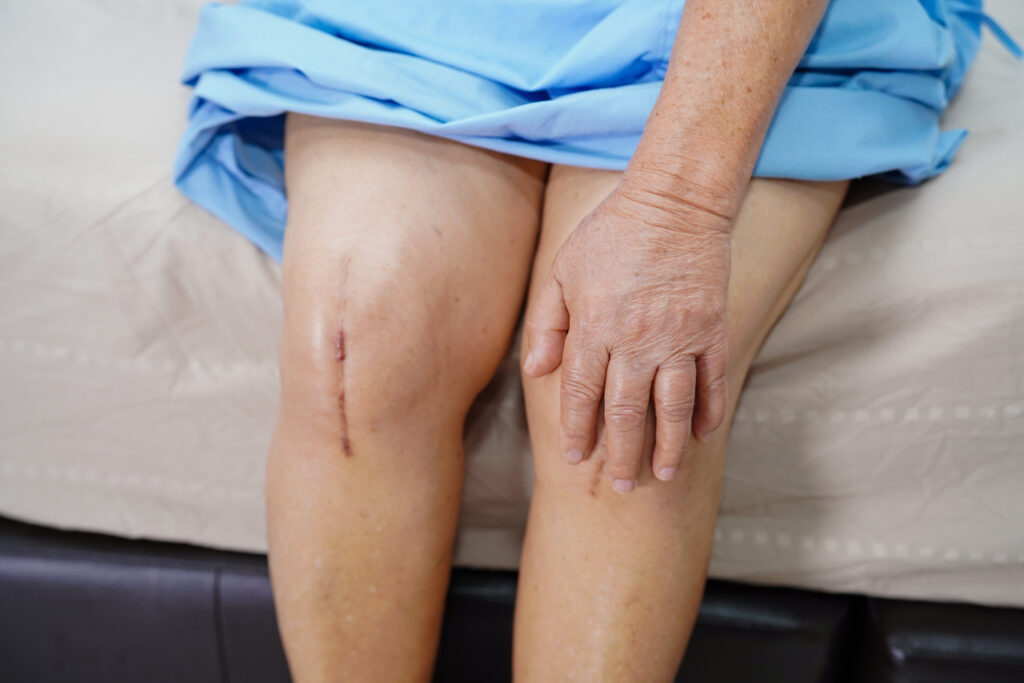If you are contemplating getting an elective (not emergent or due to an acute injury) hip or knee replacement there are three things you should be aware of. To get started, we will share a little bit of the background on having these total joint replacements. You would think it would be a simple process but in reality, it is far from it!
If you have Medicare as a primary payer for your health insurance coverage as well as an Advantage Plan or Commercial insurance, they set the rules for approval for you to have your surgery. You will have to try conservative measures and your orthopedic surgeon will need to document what they have tried and failed to treat your hip or knee pain and reduced function before your surgery will be approved.

Step One: Make sure your insurance carrier will approve your surgery. Has your doctor provided the correct documentation to the insurance?
Years ago, Medicare had total hip and total knee replacements on what they call an “inpatient only list.” This means that you were guaranteed a 2-3 stay in the hospital before you were expected to go home. Today, this is no longer the case. Both total knee and total hip replacements are no longer on the “inpatient only” list. This means that there are three different scenarios that you could be subject to when choosing to have your surgery and it can be considered as an outpatient surgery. If you would like to learn more about how you can access our assistance to help you sort out this information for you click HERE
What does this mean to you? Depending on your surgeon they may have a “routine” they follow and may tell you what to expect and when you will be likely going home after surgery.
If you have Medicare, (not a Medicare Advantage Plan as these unfortunately are treated like commercial insurance.) then the expectation from CMS or the governing body of Medicare, says each patient must be evaluated individually for how the immediate surgery recovery period will be expected to go. It cannot be a “one size fits all” approach. This information is current as of the writing of this article. Medicare rules and regulations are subject to change.

Step Two: Discuss with your surgeon any concerns you have about going home after surgery. You could recover in one of three ways.
- Same Day Surgery or Outpatient Surgery. This means you will be expected to go home right from the Surgery Recovery room roughly 2-4 hours after your surgery. You may have a physical therapist see you before you go home to make sure you can walk ok and clear you to go home.
- Extended Recovery: This means that you will be able to stay overnight in the hospital before going home. This is roughly a 23 hour stay and is still considered an outpatient surgery. Again, a physical therapist may see you before you go home to make sure your knee or hip function is adequate, and pain is tolerable, and you are ok to go home. You plan to go home the next day after surgery.
- Surgical Inpatient: This means you along with your surgeon and your Primary Care Provider have determined that the likelihood of you being able to go home after one night in the hospital in less likely and they expect you to stay at least two nights in the hospital. This gets tricky with commercial insurance and Medicare Advantage plans as the correct authorization must be obtained. Are you an outpatient or an inpatient?
What makes the difference? How do you decide which recovery model best suits you? These are great questions. We will give some examples of things to consider when looking at your immediate recovery stage of your surgery. If the wrong recovery is selected without proper insurance authorization, the surgery recovery phase in the hospital may be denied and you may be subject to a significant hospital bill.

Things to Consider for an Immediate Recovery Phase: Plan to address these at your Pre-Surgery History and Physical Doctor Appointment with your primary care provider before surgery. You may also see a physical therapist before surgery and these concerns would be good to address with them as well.
- Will you have help at home after your surgery?
- Your surgeon may use an “assessment tool” such as a RAPT score to help determine what type of immediate recovery period should be considered.
- Do you expect to have any difficulties following your surgery?
- What other medical conditions do you have that may interfere with your recovery right after surgery?
- Are you planning on needing a nursing home stay for rehab following surgery?
All of these things can impact the type of recovery you will need and if not processed correctly there could be insurance denials and could impact you financially. There are a lot of behind-the-scenes tasks and work that are required to make sure everything is done correctly for an elective joint replacement surgery.
If you have concerns about which type of immediate recovery is right for you, Your Nurse Advocate Consulting services can assist you with providing education to help you make the right decision regarding your elective surgery. We can consider your insurance, your wants and needs, your medical history and home situation to help you decide what may be the right recovery for you. We can also discuss our findings with your orthopedic surgeon and collaborate on your behalf to choose the best form of immediate recovery for you. We would be part of your healthcare team representing your best interests.

How can we help? In a couple of different ways. You could hire us as a consultant for this specific issue or you can become a member of our community and have access to us and our assistance any time you need us as things come up. If you would like to get on our email list or learn more about our services, you can click HERE and we will get you on the “in the know” list and keep you updated on what is going on with our services and useful information you can use to help you on your healthcare journey. If you would learn more about our Healthcare Professional Resource Directory, you can inquire HERE.
We look forward to serving you now or in the future. See you back here soon for more information on managing your healthcare needs.
Take care,
Pam and Your Professional Healthcare Resources
“Matching the Right Healthcare Resources for the Right Reasons”
Learn More about Patient Advocate Match Professional Healthcare Directory


